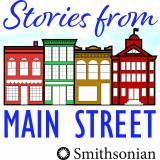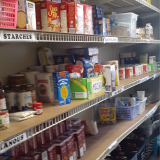Rodo Sofranac: Escaping Fascism in World War II, Arizona
Story Narrative:
Introduction:
In early 2020 (just weeks before the pandemic), Smithsonian staff and their storytelling partners at the Peale, Baltimore, traveled to multiple states in the U.S. to ask residents of those states about voting experiences, the current state of American democracy, what issues brought them to the polls, how they made a difference in their communities, and what Americans' civic responsibilities were, among other complex questions.
Media Files:
-
Watch Rodo's story (includes open captions).
-
Audio version of Rodo's story.



